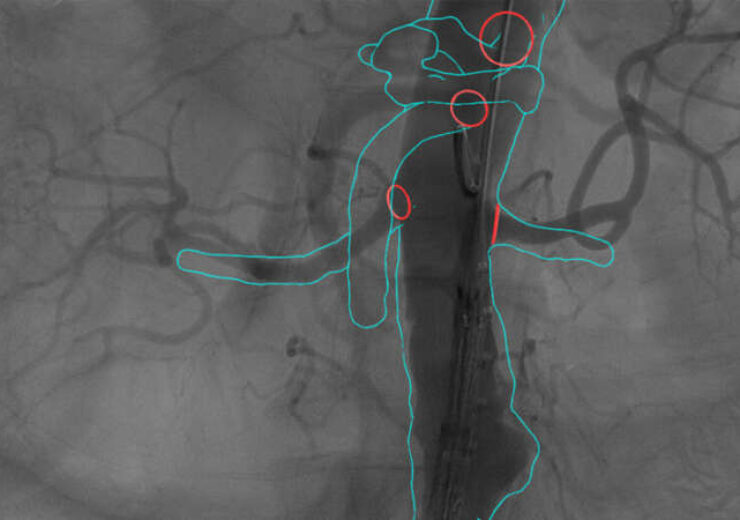The trial will enrol 340 patients across 10 sites in the UK to assess the effects of Cydar EV Maps on clinical-, technical- and cost-effectiveness in comparison to standard treatment

Cydar Medical and King’s College London begin ARIA Study to compare the effectiveness of Cydar EV Maps with traditional treatment. (Credit: CYDAR Limited)
Surgical AI company Cydar Medical, in collaboration with King’s College London, has started the ARIA study to compare the effectiveness of Cydar EV Maps with traditional treatment.
ARIA Study is a randomised controlled trial to assess the clinical, technical and cost-effectiveness of artificially intelligent image fusion system in comparison to standard treatment to guide endovascular aortic aneurysm repair.
According to Cydar Medical, endovascular aneurysm repair (EVAR) is an alternative to open aortic surgery due to its advantages in patient survival, reduced postoperative complications and shorter hospital stay.
Despite these possible benefits, there is still variation in preoperative planning and sizing, issues with faulty visualisation and inaccurate device positioning during surgery, and uneven patient results.
The trial will enrol 340 patients with a clinical diagnosis of abdominal aortic or thoracoabdominal aortic aneurysm suitable for endovascular treatment across 10 sites in the UK.
It will study the patients for one year and will assess the effects of Cydar EV Maps on clinical-, technical- and cost-effectiveness in comparison to standard treatment in endovascular aortic aneurysm repair.
King’s College London clinical senior lecturer and ARIA Study principal investigator Dr Rachel Clough said: “Our central hypothesis is that digital technology – specifically cloud-computing and artificial intelligence (AI), can be used to assess and learn from large volumes of data to inform clinical decision making and has the potential to improve the predictability of individual patient outcomes and the consistency of outcomes in the NHS.”
The first patient for the study was recruited at the Liverpool University Hospitals NHS Foundation Trust.
The product is the first offering from Cydar Medical’s integrated software solutions system. It is easy to incorporate it with already existing imaging technology in all hospitals undertaking endovascular surgery.
